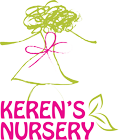Giving your child the best start to their academic life is one thing that many of us parents worry about and it is hard to know if sending your kids to nursery will benefit it, however, there is a plentiful amount of studies to suggest that there are huge benefits.
Children Aged 0-5 Years Old In Nursery
The first five years of a child’s life are crucial for many developmental milestones, such as social-emotional skills, cognitive development and gross and fine motor skills. All of these important development skills could be met with assisted guidance, support and nurturing from our professional child-care staff here at Keren’s Nursery, to best encourage this process.
We have taken this opportunity to create a list of the top five reasons why a child benefits from nursery education so that you can make your decision freely and give your child the head start they deserve.
What Are 5 Benefits of Nursery Education?
Ensuring that your child can flourish and develop all of these vital skills in a supported environment, which encourages and enhances the development process, is one of the most important decisions a parent can make. Sending your child to a Keren’s Nursery can have huge benefits for your child’s development. Here is a list of the top five ways it can promote your child’s development:
-
Educational Gain
You might not think your 18-month-old is learning much while at nursery, however, this is a vital era in their lives to learn crucial skills. By enrolling your child at Keren’s Nursery, you will ensure that they are receiving the benefits of advancing their educational skills through the curriculum assigned.
At Keren’s Nursery, we provide age-appropriate activities that stimulate each child’s needs to assist in the enhancement of certain skills, whether they be cognitive or fine-motor.
-
Social Skills
Your child will be given the chance to interact with other children and adults, which would likely not occur to the same extent if they were not enrolled in the nursery. This opportunity at Keren’s Nursery will teach and enhance social skills and communication abilities. Through socialisation, they will also build skills like listening, problem-solving, making friends, understanding and following rules and sharing. These are important skills for children as it will help them form healthy relationships.
-
Advanced Physical Skills
If you choose a nursery that has a lot to offer your child, in terms of space and activities, they will likely have the opportunity to advance their physical skills. All Keren’s Nurseries are Forest School Accredited, allowing indoor or outdoor play involving, running, throwing, climbing and more. Some great skills that they will learn and improve on are spatial awareness, balance and coordination, fine and gross motor skills and strength and endurance.
-
Learning Self-Care
One of the great things about children attending Keren’s nursery is that they will learn a great deal about self-care and hygiene. They will be mentored through processes like potty training and how to wash their hands properly and when it is most important. Keren’s Nursery will also encourage learning activities to teach children why general hygiene is important and instil a routine rotated around it.
-
Environmental and Cultural Awareness
There is often a significant amount of environmental activities that are taught across many nurseries, and more strikingly, forest nurseries such as Kerens, tend to have a strong focus on this. This is not limited to our surroundings but also learning about different countries and cultures, too. This is done through learning different stories, songs and craft activities.
What Does The UK Government Say About The Benefits of Nurseries?
In 2019, a UK government report stated that the benefits of early education were extremely positive with an increase in a child’s early development, such as social skills and social readiness, problem-solving, alongside social-emotional development skills. This is accompanied by the government offering different schemes to families with young children, such as financial support, in the hopes of making early education or childcare more accessible and affordable for everyone.









